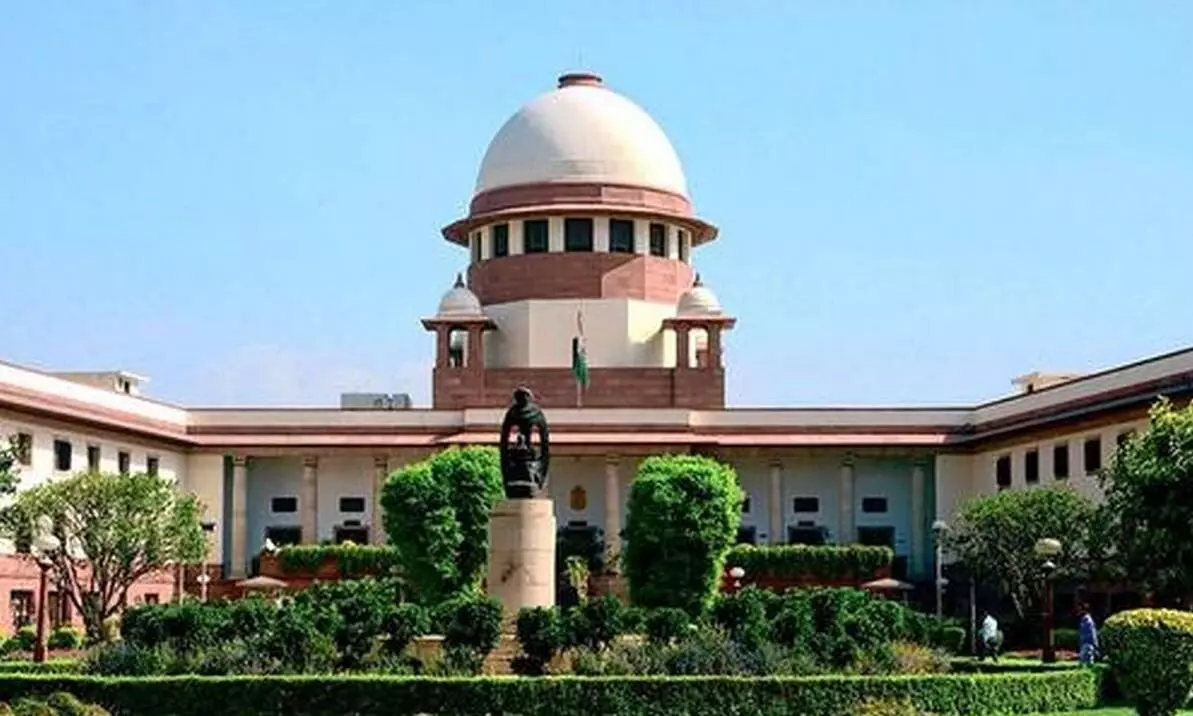
Accused's right to compulsive bail to be informed by courts, SC tells
text_fieldsSupreme Court of India, Image courtesy: https://www.india.com
New Delhi: The Supreme Court of India made certain significant remarks regarding the right of an accused. While allowing an appeal against a Madras High Court Judgment, the apex court laid out the legal position with connection to default or compulsive bail.
The High Court had dismissed a default bail application observing that the accused could not take advantage of the fact that he had filed his bail petition prior the time, the additional complaint was filed by the investigation agency.
The supreme court observed that courts should inform the accused of the availability of their indefeasible right to avail default bail once it accrues to them.
The court said that in matters of personal liberty and Article 21 of the Constitution, it is not always advisable to be formalistic or technical. It also said that courts cannot adopt a rigid or formalistic approach while considering any issues that touches upon the rights contained in Article 21.
The court also pointed out that the right to bail cannot be suspended even during a pandemic situation as is prevailing currently. The order emphasised that the right of the accused to be set at liberty takes precedence over the right of the state to carry on the investigation and submit a chargesheet.
"Article 21 of the Constitution of India provides that "no person shall be deprived of his life or personal liberty except according to procedure established by law". It has been settled by a constitution Bench of this court in Maneka Gandhi v. Union of India, that such a procedure cannot be arbitrary, unfair or unreasonable. The history of the enactment of section 167 (2), CrPC and the safeguard of 'default bail' contained in the provision thereto is intrinsically linked to Article 21 and is nothing but a legislative exposition of the constitutional safeguard that no person shall be detained except in accordance with rule of law," the order said.
"The intent of the legislature was to balance the need for sufficient time limits to complete the investigation with the need to protect the civil liberties of the accused. Section 167(2) provides for a clear mandate that the investigative agency must collect the required evidence within the prescribed time period, failing which the accused can no longer be detained. This also ensures that the court takes cognisance of the case without any undue delay from the date of giving information of the offence, so that society at large does not lose faith and develop cynicism towards the criminal justice system," the order further said.












